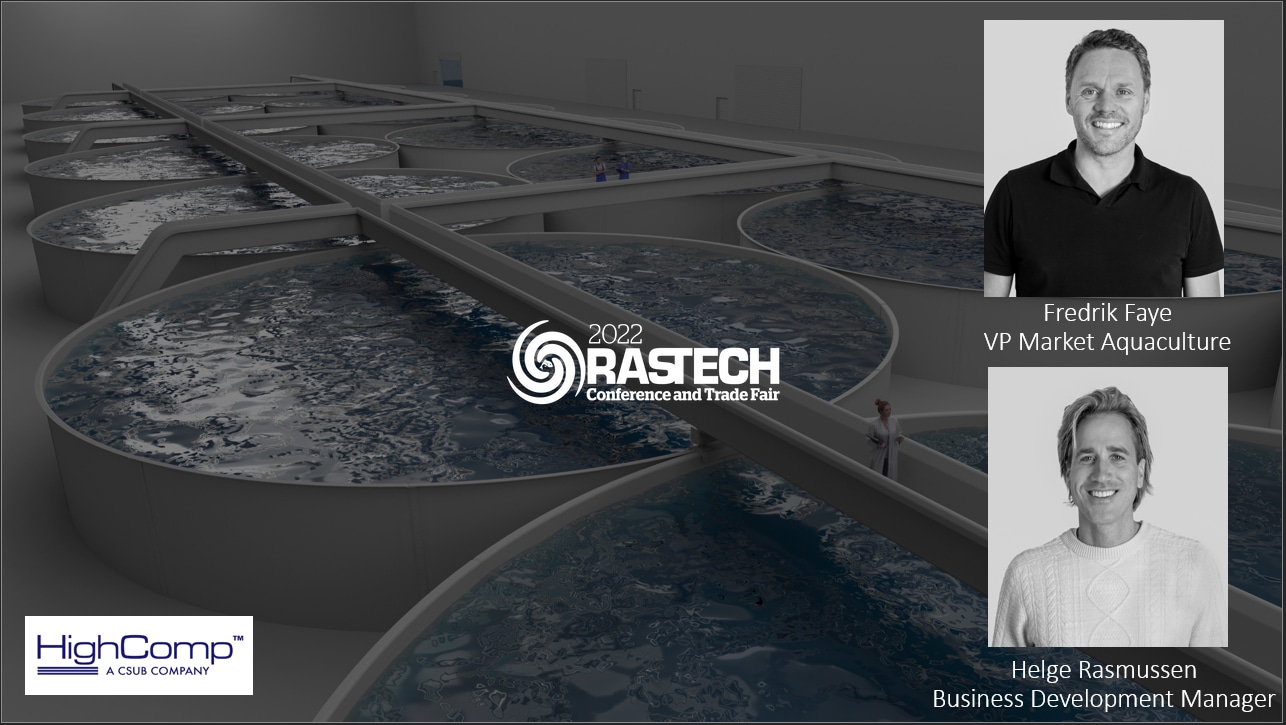On 30-31 March the international conference on recirculating aquaculture system technology (RAS),
RASTECH 2022, will be held.

HighComp participates at RASTECH 2022 conference
HighComp will be an active participant at the international conference. On Wednesday 30 March you are welcome to attend a product presentation of our fish tanks and water treatment tanks. You are also welcome to visit us at booth #11, where HighComp will be ready to discuss potential solutions and advantages for your project.
– We’re looking forward to providing more details about our optimized solutions for land based fish farms, says Fredrik Faye, Technical Manager of HighComp.
RASTECH 2022 is an international technology-oriented competence arena for suppliers and breeders. The conference will be held at The Westin Hilton Head Island Resort in South Carolina, USA.
Water treatment tanks
HighComp supplies fish tank solutions for RAS plants. Our new water treatment tanks come in the same high quality as our other products and ensure optimal storage of mechanical and biological filters and other equipment removing CO2 and N2 gas.
– We’re supplementing the aquaculture with fish farming tanks and auxiliary structures made in composite (FRP), and we’re proud to be able to offer customized solutions to our customers, says Helge Rasmussen, business developer in HighComp.
Our tank solutions have no size restriction and can be adapted to all RAS technology suppliers. In addition to cutting construction and development costs significantly, composite tanks leave a much lower CO2 footprint than concrete tanks.
– One of the advantages of our products is that we, unlike our competitors, deliver pre-fabricated solutions ready for installation at the building site, Faye says.
RAS technology
In recent years the number of RAS facilities has increased rapidly, in particular when it comes to salmon and smolt production. The facility is designed to produce large volumes of fish, with significantly lower water requirements. Water in a RAS plant can be recirculated up to 99% thanks to the mechanical and biological filter systems.
The results are a more sustainable production, improved control of water temperature, and a steady growth in production all year around. This contributes to a higher well-being in the tank environment, and a better quality of fish.
